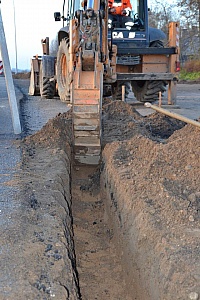Environmental groups in a number of states are pushing for ballot initiatives to ban or limit drilling for oil and gas. Most reasonable people, and I believe many oil and gas companies, agree that regulations are appropriate, especially for drilling in environmentally sensitive areas or near residential developments. But few people proposing outright bans or overly restrictive regulation discuss or even acknowledge the unintended consequences of such a course of action.
For one thing, many people do not realize that the vast majority of mineral owners are just regular individuals, some of whom depend on royalty income for retirement. A drilling ban or overly restrictive regulation can deprive some people of much needed income. Are the proponents of drilling bans prepared to replace that income or to pay additional taxes to support welfare payments to those people who need their royalties so they can pay their rent and eat?
Secondly, according to the U S and state constitutions and the legal principle of inverse condemnation, if government regulation deprives someone of their property, then the government is required to pay the owner the market value of that property. Individuals in this country own billions of dollars worth of mineral interests. A recent study in Colorado estimated the value of unproduced oil and royalties to mineral owners in that state to be $26 billion. Are taxpayers ready for higher taxes when their local or state government has to start paying these claims?
 Texas Oil and Gas Attorney Blog
Texas Oil and Gas Attorney Blog


